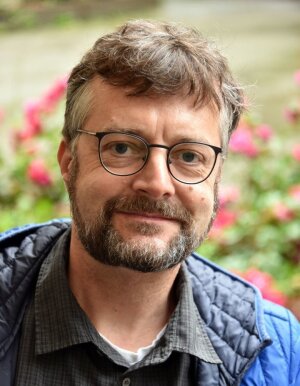Don’t mind the knowledge gap
Prof. Dr Matthias Groß
Image: Anne Günther (University of Jena)Commentary by Matthias Groß
»Knowledge is power« is a well-known saying. This does not always have to be true, but at least knowledge is seen as an expression of wisdom, diligence, education and progress. In contrast, non-knowledge, that is to say a lack of facts and certainty, is considered a shortcoming—a sign of laziness, stupidity or ignorance.
Knowledge and ignorance are on an equal footing
Sociologically speaking, things look quite different. Knowledge and ignorance are on par with each other. Both can be used as a resource for action, culturally constructed and used for both negative and positive ends. Ignorance can protect, as is shown by the right not to know in medicine. Here, the individual should be protected from receiving information that does not appear useful in order to have a good life. This could refer to the personal risk of contracting a certain disease for which there is no cure or even relief. But it might also be information that could harm self-determination, for example when facts such as sexual orientation are known about a person who wants to keep the information private.
However, ignorance can also be an expression of irresponsible behaviour, such as actively excluding information because it contradicts one’s own world view. Which of these interpretations one chooses depends on one’s own economic interests, social expectations, political attitudes or cultural preferences.
Different forms of ignorance can be distinguished. On the one hand, ignorance can be consciously constructed and information actively withheld, for example to spread doubt, as was done by the tobacco industry in the 1950s regarding the risk of developing cancer through smoking.
On the other hand, ignorance—or »non-knowledge«—can also arise accidentally or unavoidably: new knowledge reveals further, previously unrecognisable, gaps in knowledge, as is the case in virtually every research project. Furthermore, it is analytically important to clarify whether non-knowledge can be converted into knowledge within a specific period of time or whether this is not really to be expected.
If it is clear that non-knowledge, for example about the authenticity of a terror threat, cannot be transformed into knowledge within a certain period of time, then decisions will have to be made under conditions of precisely defined non-knowledge, such as the decision to cancel a football match after an anonymous terror threat.
Finally, there is the fundamental distinction between phenomena that one knows one does not know and things that are completely unknown—what is called unknown non-knowledge. The latter represents an epistemologically different category of non-knowledge and is sociologically accessible only in retrospect, that is, when people or organisations become aware of their previously unrecognised non-knowledge. The coronavirus pandemic has impressively shown that not knowing does not exempt us from making decisions.
To this end, political leaders should disclose and fully communicate the reasons for decisions made in a state of non-knowledge. Transparency about not knowing can help people to understand the situation better, to be patient and to feel empathy.
Precise non-knowledge is often the best one can have
On the scientific side, politicians’ expectations of established facts are still often accommodated and certainties are claimed that do not exist. Instead, we should consider something like non-knowledge communication or even non-knowledge transfer. In many cases, knowing exactly what is not known is the best we can do. This would be beneficial for society, which would gain insight into real-time processes instead of having to settle for the rhetoric of certainty.
It would also make it clearer that non-knowledge is not necessarily at the beginning of a process, but often only arises during that process. Ultimately, resolving non-knowledge through new solutions is usually associated with the generation of new non-knowledge. This is neither new nor bad per se, but a normal aspect of everyday life and almost every decision.
About the author
Prof. Dr Matthias Groß is a Professor of Environmental Sociology at the Friedrich Schiller University Jena and the Head of the Department of Urban and Environmental Sociology at the Helmholtz Centre for Environmental Research (UFZ).
